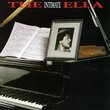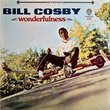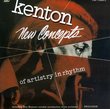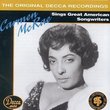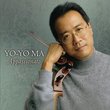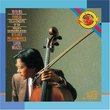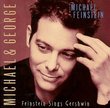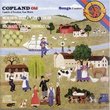| All Artists: Bobby Short, Richard Rodgers, Lorenz Hart Title: Bobby Short Celebrates Rodgers & Hart Members Wishing: 0 Total Copies: 1 Label: Atlantic / Wea Release Date: 11/1/1994 Genres: Blues, Jazz, Pop, Broadway & Vocalists Styles: Traditional Blues, Swing Jazz, Traditional Jazz & Ragtime, Vocal Jazz, Oldies, Vocal Pop, Cabaret, Musicals, Traditional Vocal Pop Number of Discs: 1 SwapaCD Credits: 1 UPCs: 075678132025, 081227628161 |
Search - Bobby Short, Richard Rodgers, Lorenz Hart :: Bobby Short Celebrates Rodgers & Hart
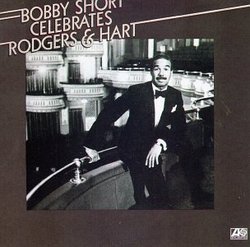 | Bobby Short, Richard Rodgers, Lorenz Hart Bobby Short Celebrates Rodgers & Hart Genres: Blues, Jazz, Pop, Broadway & Vocalists
![header=[] body=[This CD is available to be requested as disc only.]](/images/attributes/disc.png?v=a4e11020) ![header=[] body=[This CD is available to be requested with the disc and back insert.]](/images/attributes/disc_back.png?v=a4e11020) ![header=[] body=[This CD is available to be requested with the disc and front insert.]](/images/attributes/disc_front.png?v=a4e11020) ![header=[] body=[This CD is available to be requested with the disc, front and back inserts.]](/images/attributes/disc_front_back.png?v=a4e11020) |
Larger Image |
CD DetailsSimilarly Requested CDs
|
CD ReviewsBobby Short sings the classic showstues of Rodgers & Hart Lawrance M. Bernabo | The Zenith City, Duluth, Minnesota | 01/06/2005 (5 out of 5 stars) "Bobby Short has a well-deserved reputation as the consummate cabaret performer of his generation, as countless visitors to the Café Carlyle in uptown Manhattan can attest. Woody Allen did a nice job of showcasing Short in "Hannah and Her Sisters," and he managed to show up for Lucy Camden's engagement part on "7th Heaven," so there is ample evidence the man is an American icon. While he is best known for singing the songs of Cole Porter, Short is a master of many of the great American songwriters of this generation. For this 1975 album, "Bobby Short Celebrates Rodgers & Hart." Richard Rodgers and Lorenz Hart had a series of Broadway successes in the years before World War II, with "On Your Toes" (1936), "Babes in Arms" and "I'd Rather Be Right" (1937), "I Married an Angel" and "The Boys from Syracuse" (1938), "Too Many Girls" (1939), "Pal Joey" (1940) and "By Jupiter" (1942). Their last collaboration was the reworking of an earlier show, "A Connecticut Yankee" in 1943, but which time Rodgers had written "Oklahoma!" with Oscar Hammerstein II and Hart was on his deathbed. But while they worked together Rodgers and Hart wrote twenty-eight shows, did eight movies, and ended up writing over 500 songs, giving Short a lot of choices from which to select the twenty-six tracks on this album (and without doing "My Funny Valentine," which is an interesting choice all by itself). Even those who are not completely up on their Rodgers & Hart (notice hand held up) are going to recognize several classic songs, from "With a Song in My Heart" and "I Still Believe in You" to "Isn't it Romantic?" and "Bewitched, Bothered and Bewildered." But you soon find that it does not matter whether you have heard these songs before, because Short is making them his own by how he phrases each and line of every lyric. Hart's lyrics are not quite on the same level as those of Cole Porter, but they are close and listening to what Short does with each one as he sings them is the whole point here. Short plays the piano as well, but the emphasis remains on the voice from the first track, "On Your Toes," to the last, "I Wish I Were in Love Again." The comparisons to Frank Sinatra are apt, because we are talking absolute masters of vocal phrasing. That is why making this album makes me more of a fan of Rodgers & Hart, because I could not possibly have more respect for Bobby Short." He Began with the Best Stephanie DePue | Carolina Beach, NC USA | 04/18/2008 (5 out of 5 stars) ""Bobby Short Celebrates Rodgers and Hart" was initially recorded and released by Atlantic Records in 1975. In addition to Short and his stride piano, personnel on it were his usual, Beverly Peer on bass, and Richard Sheridan on drums. Music for all selections was by Richard Rodgers; lyrics were by Lorenz Hart.
Upon the record's release, Short said, "This celebration could go on somewhat indefinitely as it must certainly be true that each of our lives has been infinitely brightened, sweetened and enriched by the songs of Rodgers and Hart...I should hastily explain that we have simply sought to include some of the songs for which the two gentlemen are best known along with a few that may have escaped public notice." In the event, he gives us some great songs, "Where or When,""With a Song in My Heart," "I Didn't Know What Time It Was," "My Romance,""There's A Small Hotel,""Bewitched," and "I Wish I Were in Love Again," to cite a few. Rodgers and Hart, luckily, produced quite an extensive songbook during their collaboration. For Rodgers, as many people will be aware, produced far more sophisticated work with Hart, who unfortunately had a rather short and unhappy life, than he later would with Oscar Hammerstein. Short's stylish approach suits this repertory to perfection. Short was a leading cabaret star of the later 20th century; he was a glamorous New York icon and a great favorite of the international jet set. His work exemplified a kind of effortless elegance; his enunciation, learned at the knee of Mabel Mercer, was transparent; his baritone, transcendent; yet he had élan, exuberance and enthusiasm; and, of course, he chose the best, to begin with. " |

 Track Listings (26) - Disc #1
Track Listings (26) - Disc #1